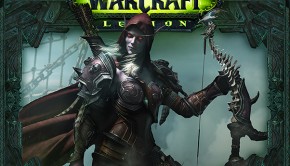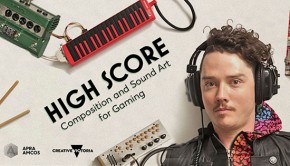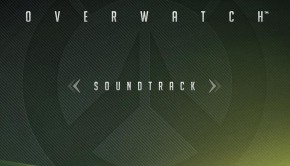Neal Acree Interview: Onwards and upwards
Neal Acree has made a name for himself with his Blizzard scores, starting with his opening cinematic tracks to The Burning Crusade and Wrath of the Lich King. Since then, his involvement with Blizzard has only gone up, from contributing to more WoW expansion scores to the recent Overwatch, which has been immensely popular since its release. Among his non-Blizzard scores is Revelation Online, a Chinese MMO with an appropriately Asian-influenced vibe, which made it onto the list of Varese Sarabande-published soundtracks, an great achievement for a film score, and almost unheard of for a game score.
Despite Revelation‘s obscurity in the West, its score has generated positive responses, including an award from Scorecast Genius Choice Vote for “Best Music” in the video game category. In this interview, Acree tells us more about how the score was put together, and how it went from being a China-only score to one of the first game soundtracks to be published by Varese Sarabande. Acree also discusses process behind the composition some of his other Blizzard music, and his reaction to the overwhelmingly positive reception that Overwatch has been receiving.
Interview Credits
Interview Subject: Neal Acree
Interviewer: Emily McMillan
Editor: Emily McMillan
Coordination: Emily McMillan
Interview Content
Emily: Thank you so much for speaking with us! How did you become involved with the scoring of Revelation, a game that has not yet been fully released in Europe or North America?
Neal Acree: It’s my pleasure! As with many career changing opportunities It started with a perfect storm of fortuitous events. NetEase felt that a game with the scope of Revelation needed a composer with cinematic sensibilities so the first place they went looking was the main film studio in China. It’s my assumption that they were initially looking for a Chinese film composer but my agency happened to have a film deal with the studio at the time and that opened the door to the West.
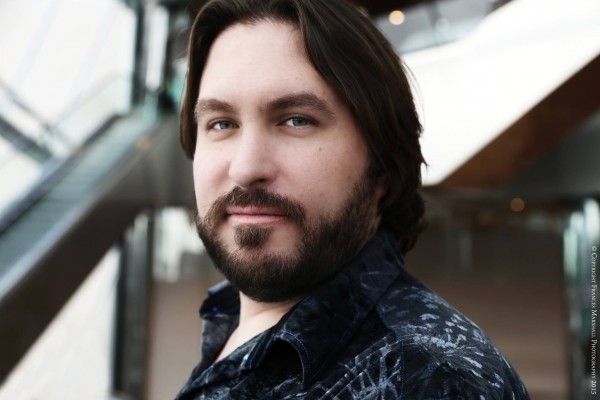
As a film and game composer with experience in Asian music my name was the first one to come up. It also happened that a few weeks before, the CEO of NetEase had seen me conducting some Blizzard music in Beijing as NetEase is the Chinese distributor of Blizzard’s games. It didn’t hurt that I had worked on Mists of Pandaria which was very successful in China. I think I ended up being the first or second American composer to work on a Chinese game.
Emily: Revelation utilizes traditional western scoring techniques, with the immersion of traditional Asian instruments. Although you have written for this kind of palette before, what kind of research did you have to do before – or during – the writing of Revelation?
Neal Acree: With Revelation I wanted to broaden the sonic pallet a bit so I not only tried to learn more about Chinese instruments than I had before but also found myself digging deeper into Japanese instruments and scales as well. Some of that research was in the form of finding instruments online and watching and listening to them be performed on YouTube. Some research involved speaking with the musicians and letting them help find ways to push things further through their own experience and mastery of the instruments.
In my opinion, the best way to get a truly authentic sound in a musical ethnicity you haven’t spent your entire life immersed in, is to have it interpreted by a musician that has. My process involves writing out the melody and having the player record it as written a few times until they have it “under their fingers”. Then, once we have it sounding as good as it can as written, I ask the player to interpret the melody as if it had been part of a piece they grew up with and had been playing their whole life. I ask them to not only interpret it through their own cultural background and experience with the instrument, but as the artists that they are. Without fail, something comes through in these takes that reaches farther than either of us as individuals could have achieved on our own with any amount of research.
Emily: Revelation was also a personal score for you for non-musical reasons. Can you tell us a little bit about this?
Neal Acree: My father loved Asian culture so I grew up around a lot of it. We studied Kung Fu together, he taught Tai Chi for many years and even became a Buddhist later in life. His favorite movies were Chinese Kung Fu films like Crouching Tiger, Hidden Dragon and Ip Man. He always dreamed of visiting China and when I first went in 2013 to conduct some of my music, I felt like I was living his dream as well as my own.
Shortly after I returned from China and shortly before I began work on Revelation he was diagnosed with terminal cancer. Needless to say, the next year and a half was one of the most difficult times in my life but in the process, the music of Revelation came to be a tribute of sorts to the influence my father had on me both as an artist and through the cultures he had exposed me to. It was the score I had always wanted to write for him and I suppose it’s fitting that it’s the last one I was able to play for him.
I dedicated the album to him because so much of who I am as a creative person came from him and I’m grateful that I had a chance to share the music with him while he was here.
Emily: What was your reaction when you found out that it was going to be released by Varese Sarabande? Were you involved in the process of VS picking it up?
Neal Acree: The short answer is that I was absolutely thrilled! I’ve been collecting soundtracks since I was 6 years old and looking over at my CD collection now I see a disproportionately large amount of them have that famous Varese Sarabande spine. Some of my favorite soundtracks and most if not all of my favorite composers have been released on Varese Sarabande so naturally it’s been a dream of mine to join their catalog.
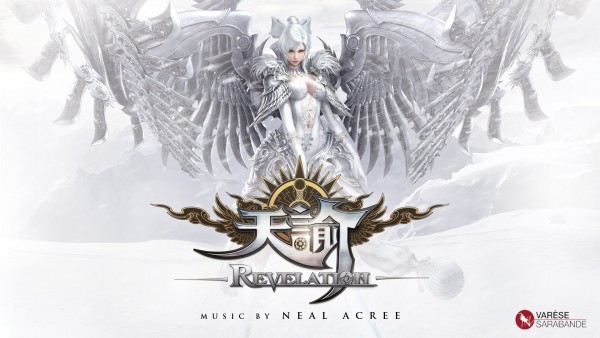
I don’t think it ever occurred to me that I would be joining the VS family with what would be their only second video game soundtrack (and first in 15 years). To me, music is music and the line between film music and game music continues to blur. I’m grateful that Robert Townson felt the same way and chose to include Revelation, a video game that had yet to even be released outside China, amongst the distinguished catalog of film scores that make up the Varese catalog.
When it came time to find a label to release Revelation, my first and only choice was Varese Sarabande for all the reasons I mentioned before. I knew it might be a long shot considering that at the time the game had almost no exposure outside of China and that Varese was predominantly known for film soundtracks but I also knew that Robert Townson is a passionate advocate of music and has more than once taken chances on projects that he believed in.
Emily: So at this point, you have worked on several projects that involve a combination of composers, from specific scores, to conventions and concerts like iDIG and Video Games Live, which bring together many musicians, even though music composition is sometimes viewed as a solitary art. What is it like working so frequently with such a wide range of musicians?
Neal Acree: One of the things I have enjoyed the most about working in the game industry is all the opportunities I’ve been given to connect with musicians and audiences around the world. Composing itself can definitely be a solitary art. During busy stretches I often go days or weeks without leaving my house or seeing anyone outside of my immediate family except for the occasional video conference. Even team composing situations can be somewhat solitary as we often all work in our own studios. At the end of every project though, we all get together at the orchestral recording sessions and the experience of so many people coming together to bring the music to life is magic.
Beyond the recording sessions the opportunities I’ve had to conduct my music live have been some of the most rewarding and gratifying in my career. After living in that relative vacuum for as long as we do, going out and seeing first hand how far the music has reached and how much it has affected people is an incredibly surreal experience.
Emily: You have a gift for orchestration and instrumentation – one pattern across your scores that I’ve noticed involve a meticulous use of instruments in specific roles. Is this a conscious decision on your part, and if so, do you have any particular set of orchestration rules or techniques that you subscribe to?
Neal Acree: Thank you! I do pay a lot of attention to the subtle sonic details because timbre can have as much of a dramatic effect as melody or harmony if done right. Don’t get me wrong, nothing can beat a great theme, but I think orchestration and timbre are extremely important as well. The use of a particular instrument can become part of the musical identity of a character or place as much as a theme can. So I do put a lot of thought into the sonic palette of a project.
Some instruments might lend themselves to certain roles better than others. Some of that might be our cultural associations with music and some of it might be the sonic characteristics of the instrument itself. Low brass, for example, seems to lend itself well to Orcs, monsters, danger and evil things. Flute might more readily conjure up visions of more delicate and peaceful things. Trumpets can be triumphant and the oboe, exotic. These rules are fun to break as challenging our associations and expectations can make for fresh and interesting music. Along those lines I do like to supplement the traditional orchestral lineup with ethnic and electronic sounds as much as possible to find new ways of evoking emotion in music. There are only a finite combination of notes available but so many ways to push the sonic envelope in music.
Emily: Did you notice any similar processes you followed scoring for Pandaria and Revelation? Both of these scores feature a heavily Asian vibe due to the nature of the game.
Neal Acree: Mists of Pandaria may have been a heavily Asian influenced score but we knew going in that Pandaria existed in Azeroth and thus no matter how exotic the music ended up being it needed to remain part of the World of Warcraft. With Revelation, I was starting with a completely blank canvas and had the opportunity to delve further into traditional Asian music than I had before.
I knew before I ever wrote a note that there would be comparisons between the two scores and while I am extremely proud of the music I wrote on Mists, I tried as much as possible to create a new world with Revelation. It was an exciting prospect to return to the world of Asian music, one that at the time I felt like I had only begun to scratch the surface of. In many ways it was like returning to a creative pond that I had previously only dipped my toes into and getting to dive all the way in.
The writing processes were similar on both scores but with Revelation I tried to define the instrumentation a little more clearly between each area. Almost every track on the album represents a different zone or character so I tried to give each it’s own sonic identity as well as it’s own theme. When I realized that I never had the opportunity to fully restate the main theme in the score, I wrote the track “Destiny” just for the album because I wanted it to be a cohesive score as much as a travelogue of all the beautiful and exotic areas of the game. Then, shortly before I finished putting the album together I was asked to score a cinematic that would become the track “The Battle of the Five Emperors” and this was an opportunity to state the theme one last time with an epic send-off.
Emily: You started off scoring the opening cinematic to World of Warcraft expansions before scoring for the game itself. World of Warcraft‘s scores tend to lean towards the cinematic, so did you find that you had to transition much as you began composing for more of the gameplay?
Neal Acree: I wouldn’t say it was much of a transition and if it was, it was a welcome one as I always enjoy opportunities to branch out as a composer. While the in-game music can at times be cinematic in scope, it has always been a great opportunity to write more intimate and personal themes.
With writing to picture, the structure is laid out and all of the timing, shifts of mood and dynamics are more or less dictated by the film. In this sense, cinematic writing can be easier in that you don’t have to worry about that daunting “blank page”. Conversely, in-game scoring can be an incredibly freeing process in that you aren’t bound by the constraints of the picture. You can take as long as you want to develop a theme and go wherever your imagination takes you. The processes for cinematic scoring and in-game scoring might differ slightly but ultimately we are just telling stories through music.
Emily: The score to Overwatch has also been released recently. Congratulations! How has contributing music to this score differed from working on other Blizzard soundtracks?
Neal Acree: Overwatch was unique in that it was Blizzard’s first new IP in 17 years and this brand new world needed a sound uniquely it’s own. Blizzard project music director and Overwatch lead composer Derek Duke worked closely with the game team to find the sound of the game and in the process brought myself, Sam Cardon and Cris Velasco in to contribute themes. While we try to cover new musical ground with every project this was building something new from the ground up. It was a little intimidating at first but a very exciting process as everyone is so passionate about the game and the visuals and stories that we had to work with were incredible.
I scored the cinematic that they used to announce the game and in addition to incorporating some of the other composers themes, I wrote the theme that would eventually become the “Victory” theme for the game. I was there at Blizzcon when they played the cinematic for the 20,000 people in attendance, none of whom had any idea that the game was being announced. It was incredible to witness and within days there were covers of the theme music popping up on YouTube based on a video that the music mixed in with sound effects and dialogue.
Another really special thing about Overwatch is the animated short films they have been making to expand the world and lore outside of the game. It was a huge honor to score the “Dragons” and “Hero” shorts which have had an incredible reception from the fans. Having started my career as a film composer and having worked a lot in games in the years since, it’s always great when I get to score a film and a game at the same time!
Emily: You now have a longstanding relationship with Blizzard and their games. What do you enjoy most about working for Blizzard? What have you gained from working with them?
Neal Acree: Nothing compares to working with Blizzard and the passion everyone there has for making the best games possible. It’s hard to even put into words what an incredible ride the last 10 years have been. Not only have I had the opportunity to write music to some really spectacular projects but the popularity of these projects throughout the world has allowed me to conduct my music on four continents. I’ve met and worked with so many incredibly talented people and have made so many friends along the way.
I have to thank Blizzard audio director Russell Brower for giving me the opportunity to be a part of the Blizzard music legacy. The trust he puts in me has given me the freedom to write some of the best music of my career. He is not only a great composer but a great team leader who knows how to bring out the best in people.
Emily: Is there anything else you would like to share about your work on Revelation or Overwatch for our readers?
Neal Acree: I wanted to take a moment and than everyone that has supported the Revelation score over the last year. To have achieved the critical recognition that it has and a major label US release of a score to a game unreleased outside of China is virtually unheard of and I owe a lot to everyone that has helped spread the word. It’s a special project to me for many reasons and I’m so glad that the music is having a chance to be heard.
I’ve been blown away but the positive response to Overwatch and am so proud to have been part of such an awesome game. I’ve heard more covers done of our music than on any other project and it’s a great feeling to see people take the time to learn the music and make it their own. I’m grateful to Blizzard and Derek Duke for having me along for the amazing ride.
Next up, World of Warcraft: Legion! I can’t wait for people to hear this one!
Posted on June 20, 2016 by Emily McMillan. Last modified on June 20, 2016.


